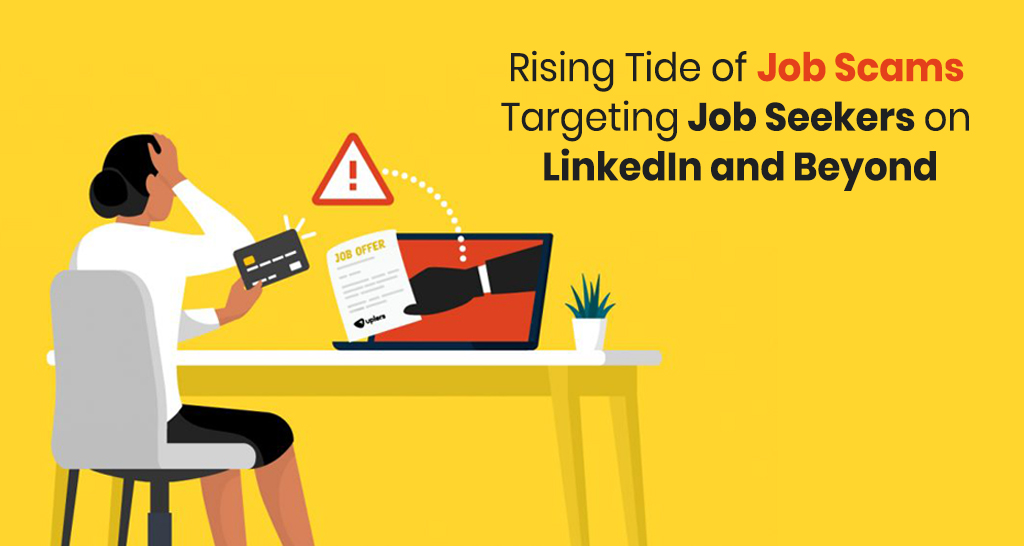Finding jobs online is convenient in a digital world, but scammers are out there. They pretend to offer employment on sites like LinkedIn and other trustworthy job websites, but they are just trying to trick people who need work. This is a big problem, and a security company named NordLayer found that nearly two-thirds of people in Britain have been targeted by these scammers. So, job seekers must be careful and stay alert to avoid falling for scams when looking for jobs online.
LinkedIn: A Breeding Ground for Job Scams
LinkedIn, a famous professional network, is often used by job scammers. A writer named Margo Gabriel had a bad experience with one. The scammer pretended to be a UK company recruiter offering help with relocation and visas. But things got fishy when the job location changed to Saudi Arabia, and the recruiter avoided answering essential questions. This story reminds us to be cautious on LinkedIn as scammers are posting fake job offers.
Ms. Gabriel’s ordeal reflects a typical modus operandi:
Scammers use clever tactics to fool job seekers. They promise great job offers with money or help moving. Then, they ask you to click a link that can steal your info or make you download something terrible.
Another trick is when they ask for money upfront for things like training or visas, promising to pay you back later. But they usually send fake checks that bounce, and you lose your money. So, be careful of these scams when job hunting.
Students: Particularly Vulnerable Targets
Students and recent graduates are easy targets for job scams. A company called Proofpoint found that scammers are going after American university students, especially those studying biosciences, healthcare, and biotechnology. Since students are new to job hunting, they might not see the signs of fake emails and offers.
These scammers are clever. They make fake websites that look real to make people pay for equipment upfront. They also use fake checks to trick people. So, students need to be careful when looking for jobs online.
Efforts to Combat Job Scams
Job websites and authorities are working hard to stop these scams. LinkedIn, for example, says they catch 99.3% of spam and scams with their automated systems and block 99.6% of fake accounts even before users report them. They have added safety features like “About this profile” and AI that checks for accurate profile photos. They are also testing a way for job posters to show they’re verified.
Other trusted job websites, like Reed, use automatic checks to make sure advertisers are legitimate. They are also looking forward to the Online Safety Bill, which they hope will make things safer for their users later this year.
Staying Safe: A Jobseeker’s Responsibility
Job seekers need to stay safe. They should always check if the job and the company are genuine. Look for actual contact information, and be careful if they ask for your details or money upfront. Remember, if a job offer sounds too good to be true, it is probably fake.
In today’s connected world, everyone wants good job opportunities. But since job scams are increasing, job seekers must stay alert, listen to their gut feelings, and be cautious when looking for jobs online.






